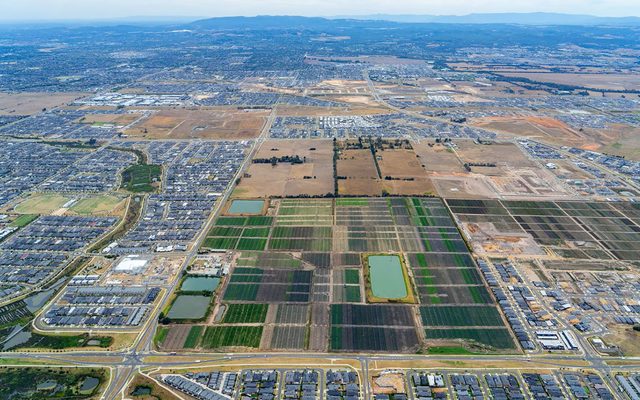This article is from the Australian Property Journal archive
THE introduction of new charges and restrictions on foreign real estate investments will be counterproductive, according to Dexus Property Group CEO and Property Council president Darren Steinberg.
The PCA warning comes amid growing calls for new charges and restrictions to be imposed on foreign investors.
The PCA said policy makers and regulators need to think hard before taking action, which could needlessly harm growth in the property sector and therefore the broader economy.
“We need to remember that the property and construction industries employ 1.3 million Australians, account for 1.5% of GDP and contribute $34 billion in real estate specific taxes,” Steinberg said.
“We don’t want to put this at risk. There is no factual basis justifying intervention in the commercial property sector.
“There is no justification for new taxes or controls on this sector,” he added.
Steinberg said global capital is attracted to those regions which show strong returns and Australia happens to offer higher yields than most other developed markets.
“With our transparency and good governance frameworks, we are naturally attracting investment. With volatility in equity markets, real assets such as property and infrastructure are very attractive to the growing pools of pension money around the globe,” he continued.
Steinberg also pointed out that gearing levels in commercial property are under control.
“Average gearing for major AREITs excluding Westfield sit at around 29% and the make up of that debt is roughly 50:50 between the banks and debt capital markets. This is a far better position than in 2008 and one of the lowest in the sector’s history,” he stated.
PCA chief executive Ken Morrison said the country seems to be whipping itself into a frenzy about foreign investment, but the facts do not support the claims that many are making.
“Less than 5% of total residential real estate transactions are by foreign purchasers and strong house price growth has been localised to just Sydney, where there is still an undersupply being worked through, and Melbourne,” he added.
Recently AMP Capital chief economist Shane Oliver said negative gearing, foreign investors and self managed super fund (SMSF) are just a sideshow to the persistent undersupply of homes.
Oliver said while the United States saw a property price surge into 2006 matched by a supply surge, supply in Australia has been subdued due to restrictive land supply policies and high stamp duty and infrastructure charges.
“The National Housing Supply Council estimated a few years ago that since 2001 Australia had a cumulative net shortfall of over 200,000 dwellings,” Oliver said.
“Given the supply shortfall, most of the scapegoats that various commentators have come up with to explain high home prices are a sideshow. Foreign and SMSF buying is no doubt playing a role in some areas but looks to be small. Negative gearing is more contentious, but it’s likely that curtailing access to it when stamp duty remains very high will have a negative impact on the supply of property to the extent that it will have the effect of reducing the after tax return to property investment.
“Restricting negative gearing for property would also distort the investment market as it would still be available for other investments.” Oliver said.
Morrison said macro-prudential controls should only be introduced where there is systemic risk.
“Arbitrarily increasing lending measures runs the risk of shutting more first home owners out of the property market and slowing new dwelling construction.
“As the RBA acknowledged, domestic housing finance lending in Australia has been managed prudently by the banking sector to date.
“With an economy in transition, the country needs a strong property sector to underwrite economic growth and new taxes and unnecessary broad based prudential measures put this at risk,” Morrison concluded.
Australian Property Journal



